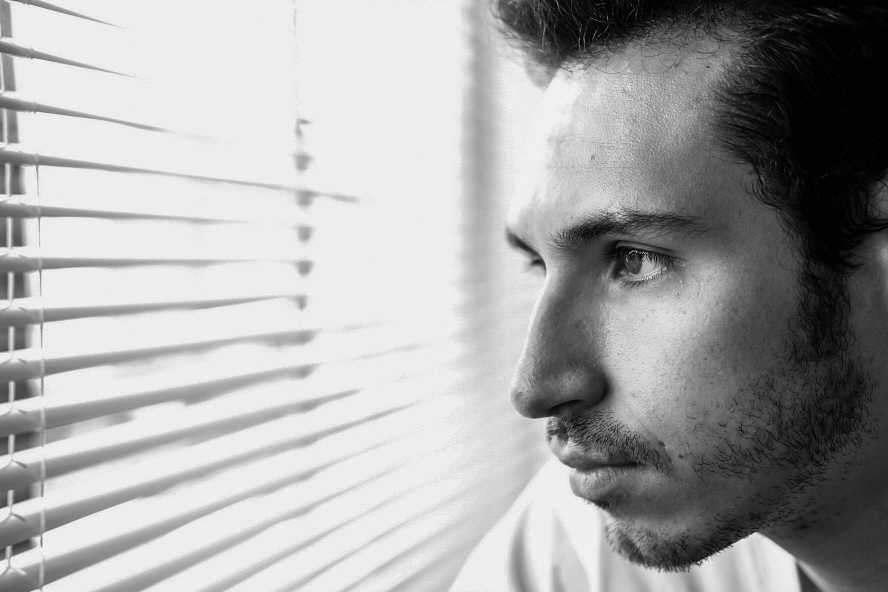I recently read an article that compared addiction to the way most people go about their life and occupation. There was a citation in the piece to a book by Steven Pressfield called “Turning Pro: Tap Your Inner Power and Create Your Life’s Work.” Curious to learn more, I read the book. The book was a roadmap for individuals seeking to turn their passions into a fulfilling and successful professional career or business. The book conveyed powerful concepts and insights about the psychological and practical challenges that many entrepreneurs face and offered practical advice for overcoming these challenges and turning one’s passion into a successful business.
Life is full of resistance to change. Resistance represents those self-sabotaging demons that all entrepreneurs know well. Resistance can be procrastination, self-doubt, fear, arrogance, laziness, and perfectionism, to name a few. Resistance is the negative force that keeps us from doing our work and becoming the best version of ourselves. When we allow resistance to dictate the direction of our lives, we become amateurs. The question is, how do we stop living our lives as amateurs and start doing our work as professionals?
The Amateur Life
Most people seek comfort in their life and career. They choose safe, less risky shadow careers rather than follow their true calling, which involves risk. They figure the consequence are meaningless if they fail in a shadow career.
Steven Pressfield wanted to be a writer. “What if I try to become a writer and fail,” he thought. The prospect of failure was so great he became a truck driver instead. Steven reckoned that driving was honest work and a good way to make a living, justifying his shadow career as a truck driver. However, this was an illusion that kept him from his true aspiration and dream of becoming a writer.
Living a shadow life or career means you settled to live a life as an amateur. Amateurs live in denial of their true calling and use addiction to keep them from breaking free and becoming a professional. The longer a person lives an amateur life, the further they drift from their real purpose. Living the life of an amateur prevents most wantrepreneurs from taking the leap and starting a business or putting their talents to use.
There is a powerful connection between addiction and resistance that prevents most amateurs from becoming professionals. Addictions need not be drugs or alcohol. Addictions can be compulsively texting, spending all day on social media, or watching TV. Addictions act as distractions and displacement activities that help us escape our true aspirations. People embrace an addiction to avoid doing the work, mostly out of fear of failure.
When we were young, we had aspirations and were fearless in our thinking. However, fear, self-doubt, and self-sabotage began to cloud our thinking as we aged. While many yearn to accomplish something great, most don’t know where to begin. Even if they knew where to begin, they are so terrified that they can’t take the first step. So, they find distractions with addictions.
Our addictions replace our aspirations. Addictions provide a quick fix and replace the commitment to the long haul. What separates amateurs and addicts from professionals is that addicts and amateurs never do the work to achieve their aspirations.
Entrepreneurs are encouraged to create a “Story Brand” and share their “Why.” The reason they are so powerful is because they tell the story of the epiphany they experienced that helped them leave the amateur life and commit to becoming a professional.
Living a professional life is natural. Living an amateur is not. Most Americans buy into the shadow life rat race storyline that says: graduate from college, get married, have kids, and work a 9-5 job so you can earn a consistent income to qualify for loans to buy a car and a house. When things start to go south, there are guardrails and safety nets to ensure the amateur doesn’t fall too hard. Life doesn’t work that way for any creature other than humans.
Professionals such as entrepreneurs experience a more natural existence. For the entrepreneur, every day is different and full of challenges to survive another day. It is survival of the fittest like it is in the animal kingdom. When things get hard, professionals do not quit. Instead, they double their effort because they know that they can’t just call a mulligan when things start to go bad. They commit to the outcome even if it kills them. There are no guardrails or safety nets for the entrepreneur that fails. Even though most fall hard, professionals look for lessons in their failure, dust themselves off and try again.
Related post: How To Know If You Are a Hunter or Farmer Entrepreneur?
The following quote sums up the life of a professional.
“It is not the critic who counts; not the man who points out how the strong man stumbles, or where the doer of deeds could have done them better. The credit belongs to the man who is actually in the arena, whose face is marred by dust and sweat and blood; who strives valiantly; who errs, who comes short again and again, because there is no effort without error and shortcoming; but who does actually strive to do the deeds; who knows great enthusiasms, the great devotions; who spends himself in a worthy cause; who at the best knows in the end the triumph of high achievement, and who at the worst, if he fails, at least fails while daring greatly, so that his place shall never be with those cold and timid souls who know neither victory nor defeat.”
Theodore Roosevelt
Amateurs live a shadow life, and addictions are the resistance that keeps them from becoming professionals. Two characteristics sum up addiction. They get you nowhere, and they produce incapacity as a payoff.
Resistance hates concentration which is required to succeed as a professional. Resistance is what keeps amateurs unfocused and distracted.
Do you check your mobile device every time you get a notification? Do you check your email or Facebook constantly throughout a typical day? That’s resistance calling to you.
The Amateur and Addiction
For the amateur, addictions can be conscious or unconscious self-inflicted wounds. The payoff for any addiction is incapacity or an excuse not to act. Soldiers during the war have been known to shoot themselves in the foot to avoid the real fight. The amateur is terrified. Fear is the primary color of the amateur’s interior world.
Amateurs have a fear of:
- Failure
- Success
- Looking foolish
- Underachieving
- Overachieving
- Poverty
- Loneliness
- Death
The amateur is an egotist and narcissist. They take the essence of their personal pain and use it to draw attention to themselves. They measure themselves against others. They live according to the opinions of others and allow their self-worth to be defined by others, and crave constant validation.
Amateurs become self-inflated when things are good and anxious when they are not. They see themselves as the hero in their story and the story of others.
Amateurs see the world as a zero-sum game. For them to succeed, others must fail. They are often jealous of others’ success. They fail to see the world through the eyes of others and are often unkind and insensitive to others and themselves due to a lack of compassion for themselves because, deep down, they know they are hiding from their true calling.
Amateurs are easily distracted and fear solitude and silence that would allow them to hear their inner voice. As a result, they seek distractions.
The amateur, like the addict, lives in hope of a future but does not want to put in the work. So instead, they focus on the product and the payoff. Their guiding principle is “What’s in it for me, and how soon and with how little effort can I get it.”
To make matters worse, marketers and politicians know this and tell them they will get what they want and it will cost them nothing.
Amateurs also look longingly at an imaginary past made of memories that almost happened or should have happened as they imagined. Living in the past or the future means they do not have to work in the present. They tell themselves, “Tomorrow, they will be ready to change.” They have a million plans, and they all start tomorrow.
The Professional
The professional, in contrast, has turned a corner in their minds. They succeeded in stepping back from themselves. They transcended the petty bullshit of the amateur life and focused on their tasks for the sake of others and the love of the process. They listened to that dream that is their calling.
As professionals, they do not become any more enlightened and still have the same weaknesses as the amateur. They just stop running from their fears and stop looking for reasons to avoid them with addictions. Rather than structure their day to avoid their fears, they confront and structure their day’s activities to overcome them.
As a result, they change:
- When they get up and when they go to bed
- The activities they do and don’t do
- What they read
- What they eat
- Their friends
As professionals, they attract a different cohort of friends and repel others. They will choose to spend less and less time with old colleagues and friends. Over time, their amateur friends will fade away from their lives to be replaced with new friends that are professionals also trying to conquer their fears.
Professionals must commit to their new journey every day. They face the same fears, but they make a conscious decision not to yield to them as the amateur does.
Generally, it takes a monumental event to cause them to decide to give up the amateur life and go pro. When they experience the epiphany, it makes them question their life as an amateur. They experience the reality of their situation, humility, and even shame for not seeing it before. The combination of these elements gives them the will to change.
Rather than toy with ideas, professionals examine them. They go deep to learn everything they can. They leave the comfort of the known that is safe and explore the unknown, which often has risks. New things become exciting for the professional to pursue.
So, what are the attributes of a professional?
- Shows up every day
- Stays focused on tasks all-day
- Is committed to the long haul
- Knows the stakes are high and real
- Is patient
- Seeks order in one’s life
- Acts in the face of fear
- Accepts no excuses
- Is prepared
- Doesn’t show off
- Dedicates themselves to mastering a technique
- Does not hesitate to ask for help
- Does not take success or failure personally
- Endures adversity
- Is self-validating
- Reinvents themselves
- Is recognized by other professionals
- Is courageous to enter combat alone
- Is not distracted
In addition, the professional:
- Is ruthless with themself – they know when they have fallen short of their own standards.
- Has compassion for themself – they do it for the love of the process and not the punishment.
- Lives in the present – they lose themselves in the moment.
- Defers gratification – they ignore email and social media throughout the day and view them as distractions.
- Don’t wait for inspiration – they find it.
- Does not give away power to others – they may seek instruction, but they do not become a groupie.
- Helps others – While amateurs will hoard knowledge, professionals give it freely but refuse to be idolized. They are willing to share their wisdom with other professionals, and only with amateurs committed to becoming professionals. They will not waste their time with dilettantes.
Professionals have the discipline to overcome resistance. They know that enlightenment comes from sitting in silence and avoiding distractions.
Professionals earn two types of rewards. One is the conventional reward of applause, attention, and money. The other is the psychological reward of pride and honor.
While the amateur lives solely for conventional rewards, sometimes professionals do not get conventional rewards. The lack of conventional rewards for the amateur drives them to quit. Professionals put in the work to earn the psychological rewards that only professionals understand. They enjoy the process rather than endure them. They engage in a rigorous regiment to elevate the talents that sustain them. For professionals, retirement is not an option. They love what they do, and there is no finish line until death.
Are you an amateur with a shadow career or a professional ready to achieve your full potential?












